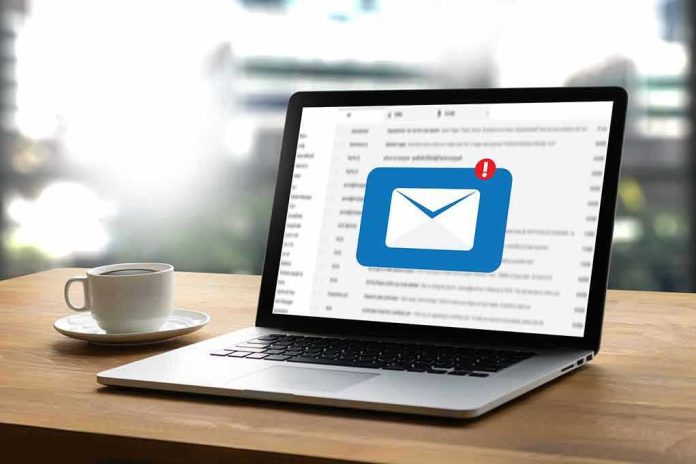
Could Palmer Luckey’s latest venture redefine American tech manufacturing?
At a Glance
- Palmer Luckey, tech entrepreneur and Trump supporter, considers U.S.-made laptops.
- Current tech market heavily relies on foreign manufacturing, notably in China.
- Potential move aligns with growing calls for technological sovereignty.
- Luckey’s history of innovation suggests this could disrupt the tech industry.
Palmer Luckey’s Ambitious Plan for U.S.-Made Laptops
Palmer Luckey, known as the mastermind behind Oculus VR and Anduril Industries, is reportedly weighing a bold entrance into the laptop market by offering products entirely manufactured in the USA. This move is not only a potential market disruptor but also a strong ideological statement given Luckey’s vocal support for technological sovereignty and his ties to the Trump administration. As we face an era where supply chain security is a top concern, Luckey’s plan could be a shot in the arm for American manufacturing.
READ NOW: Pro-Trump Tech Billionaire Palmer Luckey Considers Offering Laptops Made in the USA — Palmer Luckey, the founder of military tech firm Anduril Industries and a VR innovator once fired by Mark Zuckerberg for supporting Donald Trump, is…https://t.co/odvzdr9dpD
— Top News by CPAC (@TopNewsbyCPAC) July 24, 2025
Currently dominated by foreign giants, the U.S. laptop market has long been dependent on manufacturing hubs in China and Southeast Asia. This reliance has sparked bipartisan concern over economic and national security vulnerabilities, fueling calls for reshoring production. If Luckey proceeds with this venture, it could signal a paradigm shift, bolstering the push for domestically produced high-tech goods. His move would resonate with those frustrated by the erosion of American industrial prowess and the nation’s dependence on overseas production.
The Stakes: Who’s Involved and Why It Matters
Palmer Luckey is not just a tech visionary; he’s a political provocateur. His pivot from Oculus to Anduril Industries marked a shift to defense technology, emphasizing national security. Now, Luckey’s potential laptop venture aligns with his mission to restore American technological sovereignty. With his wealth, connections, and track record of shaking up industries, Luckey has the means to challenge the current tech landscape. Anduril, his defense tech company, might lend its expertise and resources, although it remains unconfirmed as the project vehicle.
The U.S. government and military could become key partners, particularly if these laptops are marketed for secure applications. As policymakers become increasingly wary of foreign tech dependencies, Luckey’s initiative could find strong allies in Washington. This collaboration could also benefit American manufacturing partners, potentially revitalizing domestic industries and creating high-value jobs. However, the road ahead is fraught with challenges, as cost and scalability issues loom large over any attempt to onshore complex manufacturing processes.
Challenges and Potential Impact
Producing laptops entirely in the U.S. presents significant hurdles. Previous attempts have stumbled due to high costs and supply chain complexities. Yet, Luckey’s history of disruptive innovation in virtual reality and defense technology suggests he might succeed where others have failed. His vision could attract investment and talent, fostering a new era of American tech manufacturing. However, experts warn of the difficulties in competing with established Asian supply chains, both in terms of cost and scalability.
Should Luckey’s venture succeed, the implications could be far-reaching. In the short term, it could galvanize public discourse around tech manufacturing and supply chain security. In the long run, it might catalyze a broader shift towards domestic production, impacting global supply chains and setting a precedent for other tech entrepreneurs. For U.S. tech consumers, this could mean access to more secure, domestically produced laptops, though potentially at higher prices.
Expert Opinions and the Road Ahead
Analysts acknowledge the formidable challenges Luckey faces, yet his track record suggests a capacity to defy the odds. His potential entry into the laptop market aligns with his public stance on American technological leadership. While some experts remain skeptical about the project’s scalability and profitability, others see it as a crucial step towards restoring U.S. leadership in hardware innovation. As of now, Luckey’s plans remain in the exploratory phase, with no confirmed manufacturing partners or prototypes.
Ultimately, Palmer Luckey’s latest endeavor underscores a broader narrative of reclaiming American manufacturing prowess and technological independence. While the project’s feasibility is yet to be proven, its potential impact on the tech industry and American economy could be profound. As more details emerge, Luckey’s bold vision may well become a reality, reshaping the landscape of American technology for years to come.
Sources:
Contrary Research (Anduril Business Breakdown)



